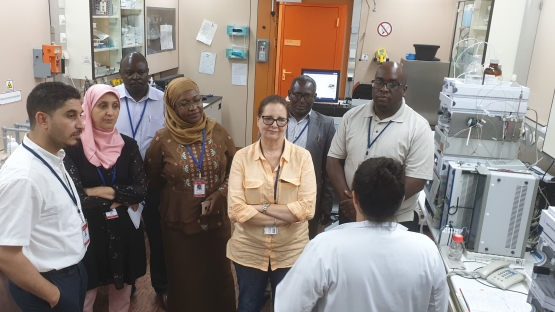The number of nuclear medicine facilities in Africa has increased from 57 to 74 over the last decade, according to the IAEA’s Nuclear Medicine Database. The increase in access to nuclear medicine services has helped many patients and at the same time highlights the importance of minimizing and mitigating the risks of accidental radiation exposure to patients, medical staff or the public during such procedures. To support countries in Africa in this regard, the IAEA recently hosted a Regional Training Course on the Prevention of Accidents and Incidents in Nuclear Medicine at its Vienna headquarters, from 22 to 26 July.
The field of nuclear medicine involves the use of radionuclides for diagnosis, disease-staging, therapy and monitoring the response of patients. Whether diagnostic or therapeutic, nuclear medicine involves the use of radiopharmaceuticals—as a result, the general principles and best practices of radiation protection must be applied.
Planned to promote adherence to the IAEA Safety Standards and to other relevant guidelines, the week-long training course was organized under an ongoing, regional technical cooperation (TC) project[1] and was attended by 21 professionals from Algeria, Kenya, Mauritius, Morocco, Namibia, Tunisia, Uganda, United Republic of Tanzania, Zambia and Zimbabwe.
The course was organized as an interactive learning experience and included didactic lectures, facilitated discussions, hands-on exercises and a visit to Nuclear Medicine Department of Vienna’s General Hospital (Allgemeines Krankenhaus). Information provided during the training included both theoretical and practical recommendations to reduce errors and accidents in the application of nuclear medicine. From the use of Incident Learning Systems and the development of an effective safety culture to the analysis of the human factor, the training course encouraged the consideration of all possible causes and sources of accidents.





